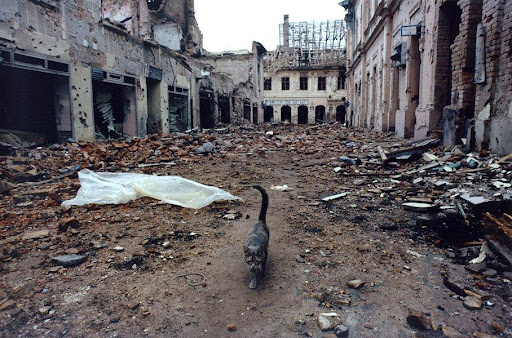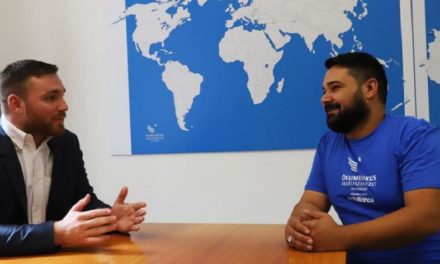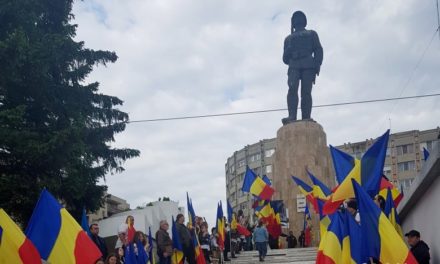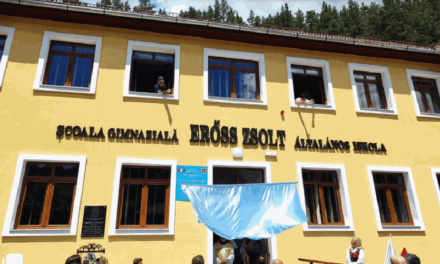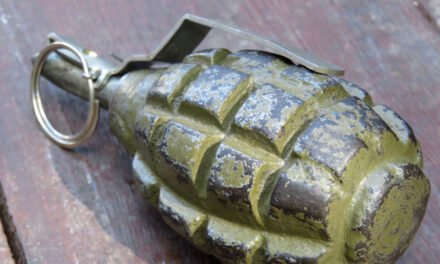A commemoration of the two-day peace demonstration that began 30 years ago, on November 5, 1991, was organized in the colonnade of the town hall in Zenta. At the event, Zoltán Pék, a representative of the republican parliament, recalled the tense and sad period of the nineties.
On November 5 and 6, 1991, the population took to the streets en masse to protest the senseless civil war in Croatia, where the reservists were taken. At the demonstration, the citizens marched in front of the town hall with "We want peace" signs, and then marched through the streets of the city in a peaceful procession to oppose the senseless bloodshed in which they did not want to participate. The former movement soon spread to Ada as well.
During that period, the shameful siege to which the reservists were transported took place on the Croatian front line in Baranya and Vukovar. The military mobilization was carried out by deceiving the citizens, the conscripts were taken for military training and were listed as volunteers in the army register. The military order was carried by the hundreds to the settlements along the Tisza.
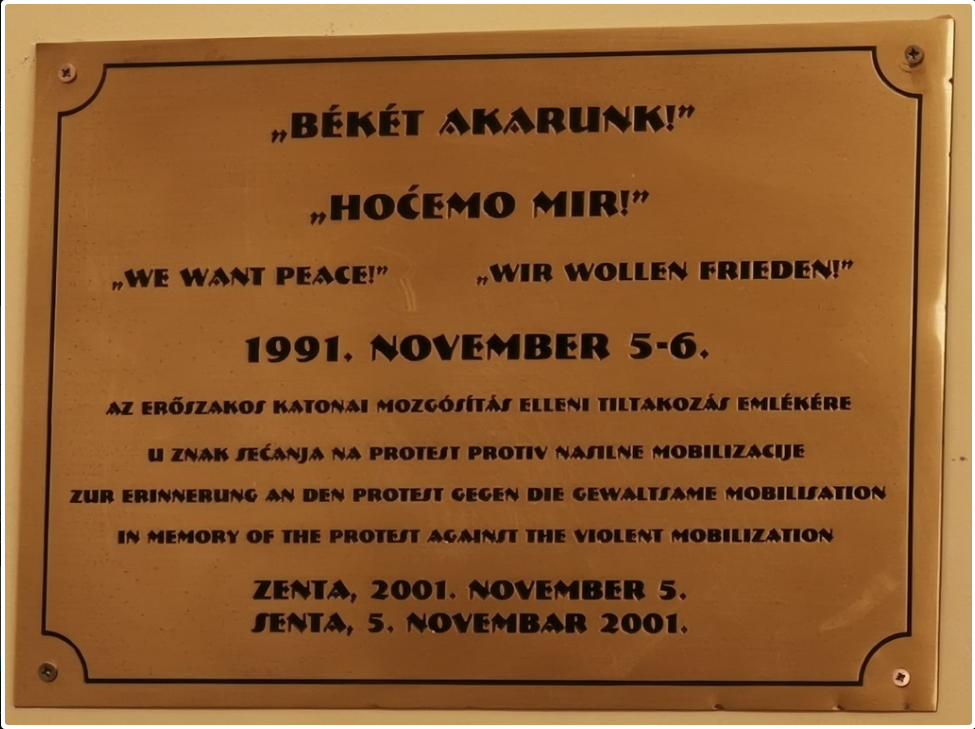
Photo: Mária Rúzsa
The reserve men hid during the day and at night, so that those who delivered the summons would not find them at home. They were also visited at their workplace, from where they were taken to the front. They had to produce four hundred conscripts, and for this they distributed two thousand call-up orders to the people. The conscripted reservists were then transported to an agricultural estate near Tornyos. At that time, the parents, family members, and friends marched out to Tornyos to the men, who were kept in very bad conditions, in a drafty building. They blocked the roads and demanded the release of the reserve soldiers. of the then mayor, Miladin Lalić, the reservists were brought to Zentara on separate buses and marched in front of the town hall. Thousands of people demonstrated against the war. Dissatisfied residents chose a crisis group and formulated their demands, for example, that the village representative body should call a referendum, at which the citizens could express their opinion on the war and mobilization.
The Constitutional Court of the time classified the calling of the referendum as unconstitutional. In the days following the movements, the military police arrested three reserve members of the crisis tribe: János Szabó, József Bodó and József Papp. They were dragged around for almost two years, after the prison they visited the front and the military court.
János Szabó's widow of the demonstration were present at the wreath-laying . The war period of the nineties is still alive today as an unprocessed trauma in the members of the older age group.
Source: Vojvodina Today
(Header image: conflict researcher)

